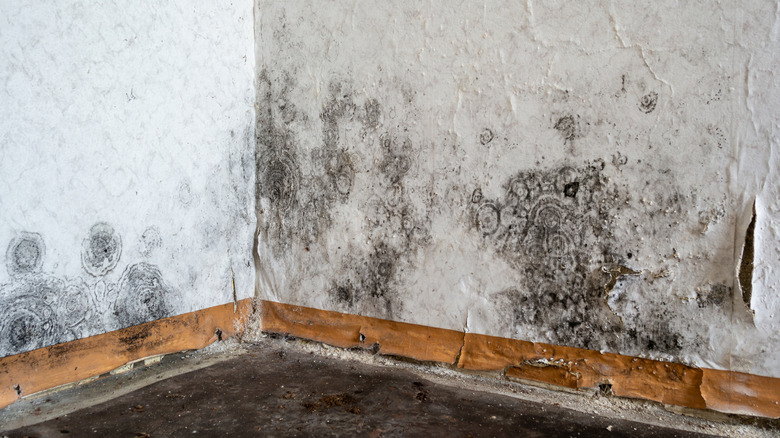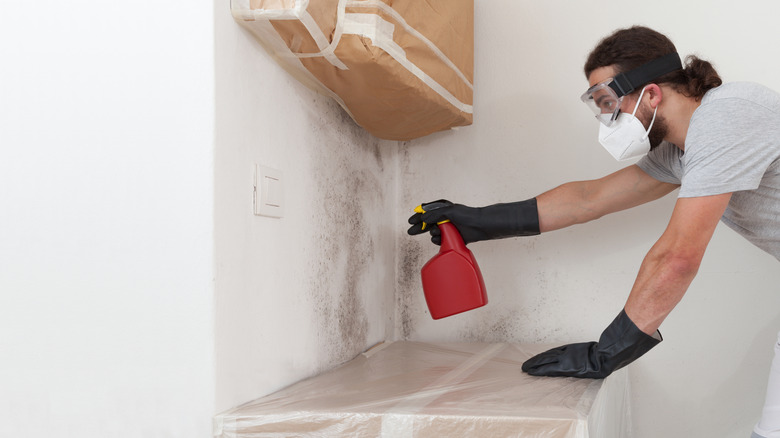How To Get Rid Of Mold After A Basement Flood Using An Ingredient You Already Have
When the basement floods, the first thing you notice is water. The second thing you notice is the smell. What you don't see right away, though, is the real problem sneakily setting in. Mold can appear in as little as 24 to 48 hours after water damage. Colonies can begin to creep across walls, flooring, or furniture, making an already stressful situation worse. Thankfully, you don't need to rush to the hardware store for harsh chemicals. The ingredient that can stop mold in its tracks is probably already in your kitchen. Thanks to its acidic nature, vinegar, a versatile cleaning tool, can help break down mold and kill it at the source.
Basements are notoriously mold-friendly because of their dark, damp environment, and after a flood, conditions become almost tailor-made for spores to flourish. That's why acting quickly matters as much as using the right cleaner. Vinegar stands out because it tackles the problem directly while staying safe for you and your family. In a situation that feels overwhelming, this simple solution puts control back in your hands and helps you fight mold before it takes over.
The easy way to eliminate basement mold after a flood
Once the water has been removed, your first priority should be safety. Mold spores spread quickly and can irritate your eyes, skin, and lungs, especially if you already deal with allergies or asthma. Before starting, slip on gloves, a mask, and goggles to keep yourself protected.
With safety in check, move on to treatment. Pour undiluted white vinegar into a spray bottle and generously apply it to the mold-affected areas. Don't rush this step. The vinegar needs time to work, so let it sit for at least an hour. The acidity breaks down the mold's structure, making it easier to remove and stopping it from spreading further. Once the vinegar has had time to do its job, scrub the area thoroughly with a sponge or brush, then wipe it clean with a dry cloth. To prevent mold from entering your home, make sure the basement is well-ventilated during and after cleaning. Open windows, switch on fans, or use a dehumidifier to keep moisture levels down and prevent spores from returning.
It's important to remember that vinegar isn't suited for every surface. Stick to plastic, glass, porcelain, drywall, insulation, and vinyl. Avoid using it on wood, since vinegar can erode the finish and may leave permanent damage.

